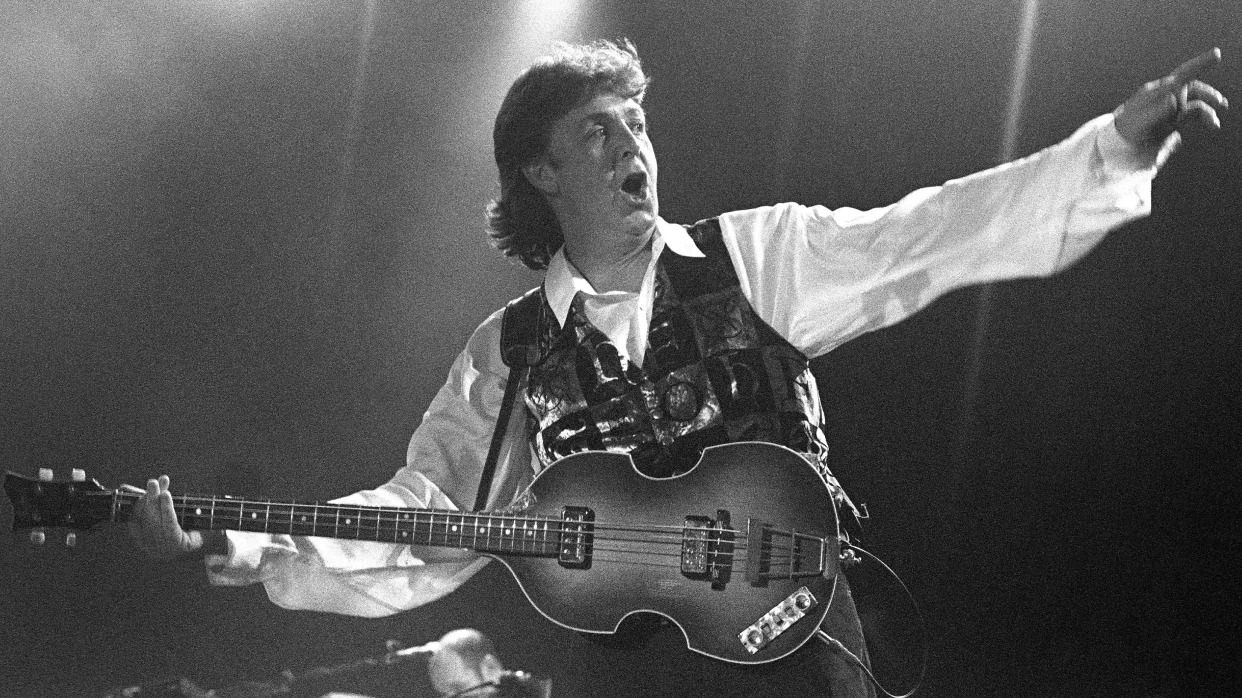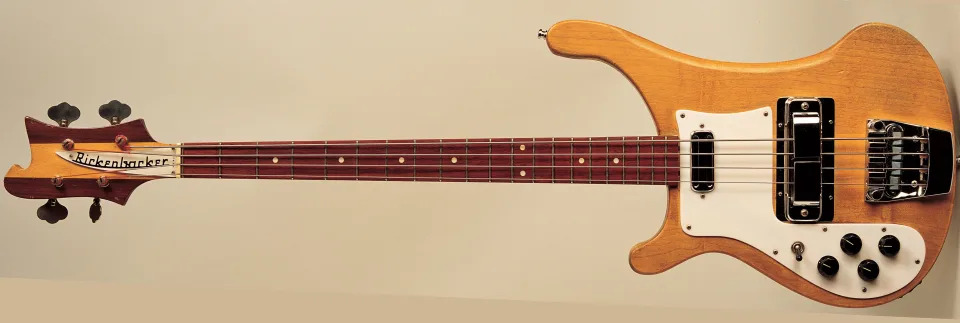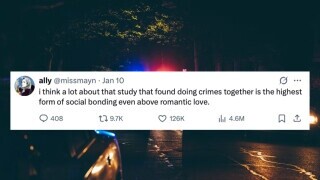Well who knew .....i never knew .....did you .......if you did ....then fantastic ......
Paul McCartney on bass: "When we met Elvis, I was like, ‘You’re trying to learn bass, are you, son? Sit down, let me show you a few things’"
Join us for our traditional look back at the news and features that floated your boat this year.
Best of 2023: In 1994, Tony Bacon sat down with Paul McCartney as part of his research for the first edition of his magnum opus, The Bass Book.
"McCartney could not have been more generous, entertaining, and candid in the few hours we spent together," wrote Bacon.
"I started by asking about my favourite period of his bass work with the Beatles, during the making of Sgt Pepper."
What followed, first appearing in Bass Magazine, was a fascinating insight into Macca's favourite basses, some key lines and the players that influenced his craft...
When you were recording Sgt Pepper, you created some great independent lines for the bass.
“Yeah, that was really when I got into that. That was probably what ended up being my strongest thing on bass, the independent melodies. On Lucy In The Sky With Diamonds, you could easily have had [he sings a root-note version through the first few chords].
"It would have been like Louie Louie or something. Whereas I was going [sings the Lucy bass-line], just running through that. It’s only really a way of getting from C to F, or whatever, but you get there in an interesting way.
"That became my thing, doing that.”
In the early days, the bass was just something you had to put in the song, but now you seemed to be thinking about being a bass player in your own right.
“From the word go, once I got over the fact that I was lumbered with the bass [laughs], I did get quite proud to be a bass player, quite proud of the idea. Once you realised the control you had over the band, you were in control. They can’t go anywhere, man. Ha! Power!
“I then started to identify with other bass players, to talk bass with the guys in the band. In fact, when we met Elvis, he was trying to learn bass, so I was like, ‘You’re trying to learn bass, are you … son? Sit down, let me show you a few things’.
"So I was very proud of being the bass player. But as it went on and I got into that melodic thing, that was probably the peak of my interest.”
You were responsible for many people thinking of the bass as a much more acceptable instrument, compared to when you were “lumbered” with it back in the early days of the band, when you took over from Stu Sutcliffe.
“Yeah, it became a bit more skilful. I wouldn’t personally credit myself, but thanks for that. But I think James Jamerson, him and me, I’d share the credit there. I was nicking a lot off him.
It did become a lot more of a funky instrument: it was becoming almost like a drum, the rhythmic possibilities. It was very exciting
"That was the thing, though, it did become a lot more of a funky instrument: it was becoming almost like a drum, the rhythmic possibilities. It was very exciting, that, and it also gave me something to keep me interested.
“The danger with bass is that everybody else has got the interesting jobs and you’re just the last guy to get a part, and literally you get the root notes, two in a bar. But actually… now, I quite like that, I like the simplicity. Sort of country and western bass playing.”
It’s like you have to learn the complicated stuff in order to…
“To come back, that’s right, to come back to the nice simple stuff. But as I say, I became very proud to be the bass player in the Beatles.
"The other thing for me that was hard was because some of these parts were independent melodic parts, it became much more difficult to sing, it was like doing this [pats his head and rubs his stomach].
“So I had to put a little special effort into that, which made it very interesting. If you were singing 'She was just 17…' and going [sings energetic bass-line], well… that became the skill, I could just learn [sings I Saw Her Standing There bass-line], nicked from Chuck Berry as I’m sure you know, I’m Talking About You. I’ve given him credit, though.”
In Wings, it rarely seemed to be at the same creative level.
“I never quite had the interest that I had during that sort of dream period around Sgt Pepper, and Rubber Soul, when I was doing something. See, with Wings, I was now the band leader, the business manager, the this, the that… we didn’t have Apple, we didn’t have [manager Brian] Epstein, we didn’t have anything. It was me doing it all. That was the biggest headache. That’s difficult."
“In the Beatles, I’d been free of all of that - we had a manager, we had three other great guys. I could concentrate everything on writing the song, singing harmony with John [Lennon], or playing the bass, pretty much my role, or maybe playing a bit of piano or guitar or something.
“Other than that, I really didn’t have much to do, so you could put all your energy into that. And I think after that, I sidelined the role of bass, a bit, in favour of the role of frontman. It was not really my favourite thing to do, but there was really nothing else to do. The only alternative was to give up music, that I saw.”
I found a nice little shop in the centre of Hamburg, near a big department store called Karstadt. And I saw this bass in the window, this violin-shaped Höfner.
Your first basses in the Beatles were the famous Höfners. How did you come to play those?
“I found a nice little shop in the centre of Hamburg, near a big department store called Karstadt. And I saw this bass in the window, this violin-shaped Höfner. It was a good price, because my dad had always said I shouldn’t do the never-never [buy on credit], but we were earning reasonable money. I liked the Höfner’s lightness, too. So I bought it, and I think it was only about 30 quid.
“I’ve still got one which is from the Beatles days, one I actually use now on tour, and I’ve had some technical work done on that. Last year, Mandolin Brothers in New York did some serious good work, actually put it in tune for the first time in its life.
"Usually the E could be in tune but the third fret G was always a little bit sharp - as soon as you’d gone to the third fret it was a little bit sharp. I was using it on a big tour, so it was a bit embarrassing. I hadn’t used it for a long time for that reason, but I got it all sorted.”
Were you listening to other bass players much? You already mentioned James Jamerson.
James Jamerson became just my hero, really
“Funnily enough, I’d always liked bass. My dad was a musician, and I remember he would give me little sort of lessons, not actual sit-down lessons, but he’d just say something... when there was something on the radio he’d say, ‘Hear that down low? That’s the bass’. I remember him actually pointing out what a bass was, and he’d do little lessons in harmony.
DON'T MISS
James Jamerson: 11 iconic basslines
"So when I came to the Beatles, I had a little bit of musical knowledge through him - very amateur. And yes, then I started listening to other bass players, mainly as time went on. Motown, James Jamerson became just my hero, really. I didn’t actually know his name until quite recently. Him and Brian Wilson were my two biggest influences.
“James Jamerson just because he was so good and melodic, and Brian because he went to very unusual places. If you were playing in C he might stay on the G a lot, just to hold it all back, and again, I started to realise the power you had within the band, not actually vengeful power, just that even though the whole band is going in A you could go in E, and they’d go ‘Let us off the hook!’ You’re actually in control then, an amazing thing."
“So I sussed that and got particularly interested in playing the bass. Then I took it beyond that. I thought ‘If you can do that, what else can you do?’ You might even be able to play notes that aren’t in the chord.
“I just started to experiment: what could you do? Well, maybe you can use different notes. Sevenths instead of the regular notes, or maybe even a little tune through the chords that doesn’t exist anywhere else. That idea of an independent melody.”
On some Beatles footage you look like you’re playing with a plectrum; elsewhere, as though you’re playing with your thumb.
“I did a bit of both. Mainly, if it was a sort of important gig, I’d nearly always resort to a pick because I feel safer that way. And with recording it helps. The engineers used to like to hear the pick, because then they get the treble end out as well as the bass, and they could do the mix, get it to kick right out. I used to do a bit of both. I was never trained in any styles, so I just picked it up.”
How did you get your Rickenbacker bass?
“I got it in America. Now we were getting quite famous - obviously once we got to America we were quite famous - and Mr Rickenbacker said ‘Paul, we have a bass’. Oh, great! Freebie! Thank you very much.
“I became fond of that instrument and then I used to use either that or the Höfner, just to vary it a little bit, and round about the time of Sgt Pepper I was definitely using the Rickenbacker quite a lot. It was a slightly different style, and it stayed in tune better, that was the great thing.”
I think you started using the Rickenbacker around the time of Rubber Soul in 1965, and Michelle always struck me as a good melodic line, quite thought out.
“It actually was thought up on the spot. Yeah! Because you didn’t have much time. You had to think on your feet, that was the thing. I would never have played Michelle on bass until I had to record the bass-line. Bass isn’t an instrument you sit around and sing to - I don’t, anyway. But Michelle, I remember that line against the descending chords, that was like, oh, a great moment in my life.
“It’s quite a well-known trick to do that, I’m sure jazz players have done that against that descending thing. But wherever I got it from, the back of my brain somewhere said: do that, that’ll be nice, it just lays it out a bit more. Just a bit cleverer for the arrangement, it’ll sound good on those descending chords.”
How long did the Rickenbacker have the psychedelic paint job?
“That was around the time of Magical Mystery Tour, I got out the old aerosols. Because we were all doing that: George did his guitar, we did the cars. So if you did the cars, you might as well do your guitars.
“It looked great, and it was just because we were tripping, that’s what it was, man. Look at your guitar and you’d trip even more. I sort of grew out of that, like most people did.”
I believe you’ve been looking back at your time in the Beatles for a TV project called the Anthology [first broadcast in 1995, the year after this interview]. What’s that been like?
“It’s very good. Funniest thing is that we don’t always agree on the memories, because it’s 30 years ago. So it’s hilarious… on camera. There’s one bit, Ringo’s telling a story, and he says, ‘At that point George had a sore throat…’ Camera pans to George, George says, ‘I thought it was Paul’, and the camera pans to me, and I say, ‘Well I know it was John.’
“And I’ve worked it out since, I say this to people: if Ringo thought it was George, it wasn’t Ringo; if George thought it was me, it wasn’t George; I thought it was John, so it wasn’t me. It must have been John, he was the only one left! But this is funny, for the definitive bloody thing on the Beatles. It’s great, you’ve just got to laugh. It’s so human, so real. We forget… who cares? We did some great stuff. Exact analysis was never our bag. And it obviously still isn’t!”








No comments:
Post a Comment